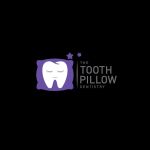- Understanding Dry Mouth and Its Causes
- The Importance of Oral Health for Patients with Dry Mouth
- Daily Oral Care Tips to Manage Dry Mouth
- Dietary and Lifestyle Adjustments for Better Oral Health
- Recommended Products and Treatments for Dry Mouth
- When to Seek Professional Dental Care
Understanding Dry Mouth and Its Causes
Dry mouth, medically known as xerostomia, is a condition where the salivary glands don’t produce enough saliva to keep the mouth moist. This can be caused by various factors such as medication side effects, aging, certain medical conditions, or cancer treatments. Saliva plays a critical role in maintaining oral health by neutralizing acids, preventing tooth decay, and aiding digestion. Without sufficient saliva, patients may experience discomfort, bad breath, and increased risk of dental problems. Recognizing the causes of dry mouth is the first step toward effective management and maintaining good oral hygiene.
The Importance of Oral Health for Patients with Dry Mouth
Maintaining oral health is especially crucial for patients with dry mouth because reduced saliva increases the risk of cavities, gum disease, and oral infections. Saliva acts as a natural cleanser that washes away food particles and bacteria. Without this protective effect, harmful bacteria thrive, which can lead to plaque buildup and enamel erosion. Patients with dry mouth need to adopt more vigilant oral hygiene routines to compensate for this loss and protect their teeth and gums from long-term damage.
Daily Oral Care Tips to Manage Dry Mouth
Daily oral care for individuals with dry mouth includes brushing teeth at least twice a day with fluoride toothpaste to strengthen enamel and prevent decay. Using a soft-bristled toothbrush helps reduce irritation to sensitive gums. Flossing daily is essential to remove plaque between teeth. Additionally, rinsing with alcohol-free, saliva-stimulating mouthwash can help moisturize the mouth without causing further dryness. Drinking plenty of water throughout the day keeps the mouth hydrated and aids in alleviating dryness symptoms.
Dietary and Lifestyle Adjustments for Better Oral Health
Diet and lifestyle changes are key components in managing dry mouth. Avoiding caffeine, alcohol, and tobacco products is important because they can exacerbate dryness. Patients should opt for sugar-free gum or candies that stimulate saliva production. Eating moist, nutrient-rich foods such as fruits, vegetables, and soups can help maintain moisture. Limiting sugary or acidic foods reduces the risk of tooth decay, which is heightened in dry mouth conditions. These adjustments can greatly improve comfort and oral health outcomes.
Recommended Products and Treatments for Dry Mouth
There are various over-the-counter products designed specifically for dry mouth sufferers, including saliva substitutes, oral moisturizers, and special toothpastes formulated to protect sensitive teeth. Prescription medications may be recommended by healthcare providers to stimulate saliva production. Additionally, regular dental check-ups allow for early detection and treatment of potential complications. Patients should consult their dentists about the best personalized treatment plans and product recommendations to effectively manage their symptoms.
When to Seek Professional Dental Care
Patients experiencing persistent dry mouth symptoms, difficulty swallowing, or increased cavities should seek professional dental advice promptly. Dentists can provide customized care plans, fluoride treatments, and guidance on managing oral health complications linked to xerostomia. Early intervention is essential to prevent serious oral health issues. For trusted products and expert advice tailored to dry mouth care, visit Dentistry Toothtruth to find resources that support your oral wellness journey.







 Perla Dental & Orthodontics (Powered by Sonrisa Family Dental)2.0 (34 review)
Perla Dental & Orthodontics (Powered by Sonrisa Family Dental)2.0 (34 review) Palo Alto Endodontic Center5.0 (12 review)
Palo Alto Endodontic Center5.0 (12 review) Custom Endodontics4.0 (67 review)
Custom Endodontics4.0 (67 review) The Tooth Pillow Dentistry0.0 (0 review)
The Tooth Pillow Dentistry0.0 (0 review) Bufano & Bufano DDS PA4.0 (141 review)
Bufano & Bufano DDS PA4.0 (141 review) Dr. Valarie Kreps0.0 (0 review)
Dr. Valarie Kreps0.0 (0 review) The Importance of Oral Health Education During Pregnancy for a Healthy Pregnancy
The Importance of Oral Health Education During Pregnancy for a Healthy Pregnancy Best Tips for Brushing Your Teeth Properly for Healthy Gums: Essential Techniques for Oral Health
Best Tips for Brushing Your Teeth Properly for Healthy Gums: Essential Techniques for Oral Health Why Skipping Dental Checkups Can Lead to Bigger Oral Health Problems
Why Skipping Dental Checkups Can Lead to Bigger Oral Health Problems Advantages of Porcelain Dental Restorations
Advantages of Porcelain Dental Restorations How Can Diabetes Cause Tooth and Gum Problems? Preventing and Managing Oral Health Issues
How Can Diabetes Cause Tooth and Gum Problems? Preventing and Managing Oral Health Issues Healthy Habits for Promoting Good Oral Health and Hygiene: Tips for a Healthy Smile
Healthy Habits for Promoting Good Oral Health and Hygiene: Tips for a Healthy Smile